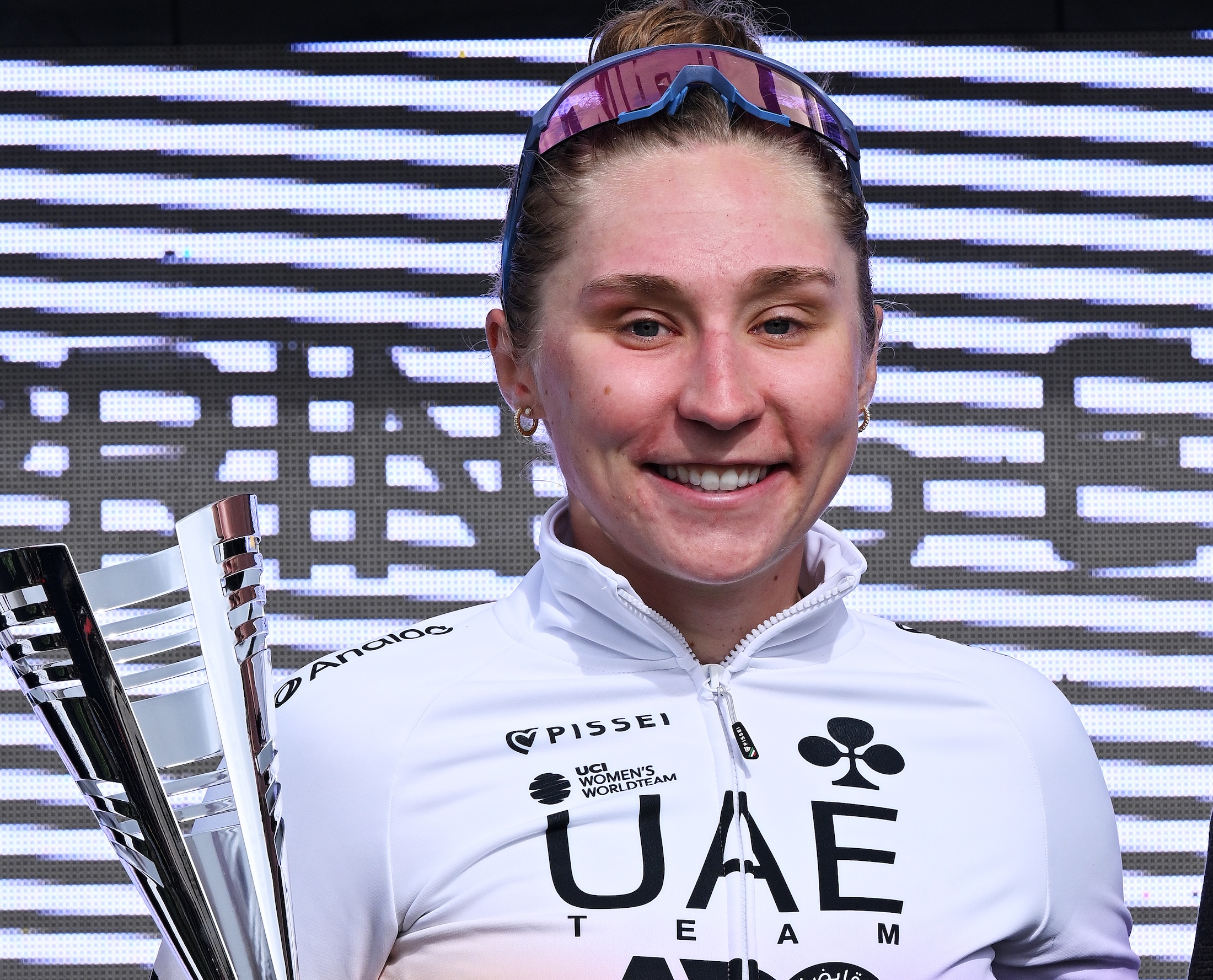Can Mark Cavendish win a 35th Tour de France stage at Astana?
7 key question marks over Cavendish's campaign to win his 35th Tour de France stage with Astana Qazaqstan
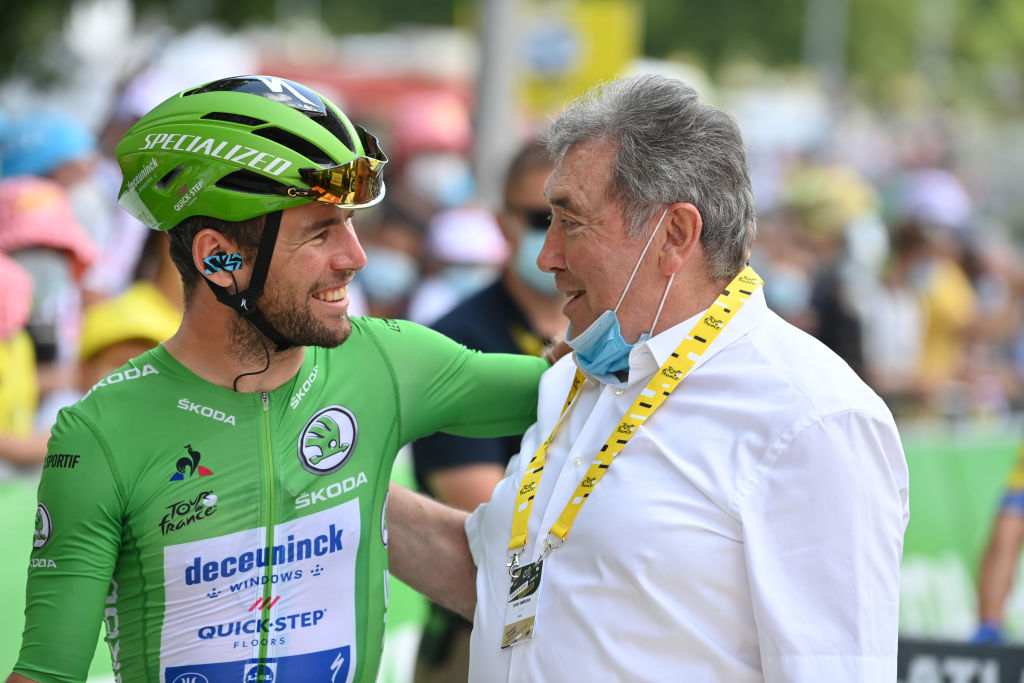
The latest race content, interviews, features, reviews and expert buying guides, direct to your inbox!
You are now subscribed
Your newsletter sign-up was successful
Mark Cavendish rides for Astana Qazaqstan. That statement might have seemed farfetched for much of last year, and blindingly obvious since December, but this week it was made official, and everyone can finally start looking ahead to July.
Mark Cavendish, as if it needs repeating, finds himself on 34 Tour de France stage wins, tied for the all-time record with Eddy Merckx. One more would see him stand alone in the history books and provide a fairytale conclusion to an illustrious career.
But will it happen?
The move to Astana Qazaqstan was only engineered at the eleventh hour, after the collapse of the B&B Hotels team Cavendish had been set to front up in 2023. As such, it's more a marriage of convenience than love at first sight, but that's not to say it can't bring fulfilment to both parties.
Here, we take a look at the key question marks that surround Cavendish's move to Astana, and the hurdles to be overcome if he's to reach the magic 35.
Who will lead him out?
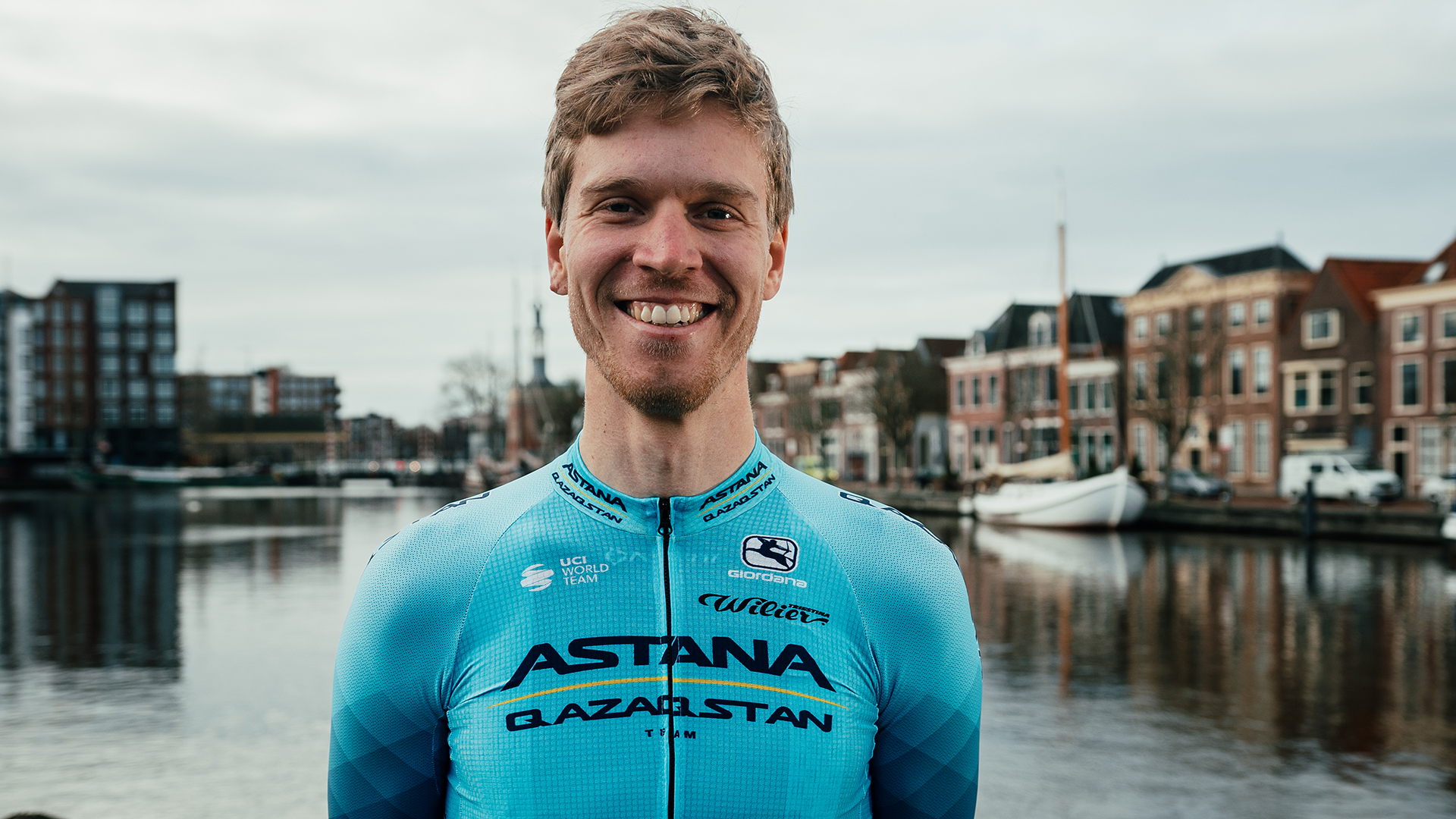
This is perhaps the biggest question mark. Astana's sprinting pedigree, as their own team boss has openly acknowledged, is almost non-existent. Cavendish, meanwhile, has come from the best set-up in the business. Every sprinter seems to be elevated in QuickStep blue - see Viviani, Gaviria, Kittel, Bennett, Trentin etc - and, while he was obviously more successful at HTC, it has to be said that Cavendish's team played no small part in his revival in the past two years.
It's also worth noting that when Cavendish was headed for B&B Hotels, he recruited veteran lead-out man - and former QuickStep man - Max Richeze, while Arnaud Démare's star man Ramon Sinkeldam was also signed up from FDJ. He won't have those riders now, and nor do Astana have anyone truly honed in the arts of top-level lead-outs.
The latest race content, interviews, features, reviews and expert buying guides, direct to your inbox!
And yet, you look at the roster and it's not all that hard to piece together a respectable group. For starters, Cees Bol is also on board after the collapse of B&B. He had a full lead-out at his own disposal with DSM and while he may have harboured his own sprinting ambitions for 2023, he has only averaged one win per season in the past three years and his engine - less explosive than Cavendish's - could be ideally suited to the lead-out. At this point, he looks like Cavendish's most important ally.
There's also Martin Laas, the Estonian who was signed by Astana before Cavendish became available, having won some lower-level sprints with Bora-Hansgrohe. Like Bol, actual lead-out experience is thin on the ground. There is a third 'sprinter' option in the up-and-coming Gleb Syritsa, the hulking Russian who won a stage of the Tour de Langkawi in October, but experience full stop is thin on the ground; 2023 will be his first season as a pro and it's a stretch to see him playing such a key role at such a high level.
Looking at the riders for the earlier phases, Cyclingnews understands that two of the team's Kazakh contingent are being considered for the Cavendish group: Dmitri Gruzdev and Yevgeniy Fedorov. Gruzdev is one of the team's elder statesmen, the 36-year-old having ridden 11 seasons and six Tours de France with them, while Fedorov is a future hope after winning the U23 world road race title in September. Beyond those riders, Davide Martinelli stands out as a rider with solid lead-out experience from QuickStep and who started his career alongside Cavendish at Team Sky in 2012. Former U23 world champ Samuele Battistella has speed but is more versatile and perhaps has strengths and ambitions elsewhere. At that point, you're looking at who else will make Astana's Tour team. Alexey Lutsenko is a shoo-in and would surely do a decent job, but will likely have his eye on GC, while Gianni Moscon is another of the team's bigger engines who could do the early work.
In short, it's a far far cry from QuickStep, but there's perhaps a better array of carriages available to Cavendish than may have initially met the eye. The real question is whether they can be assembled into a well-oiled train. As much as watts, that will require communication and understanding. It can take years, but they only have months.
How will he fit into the team culture?
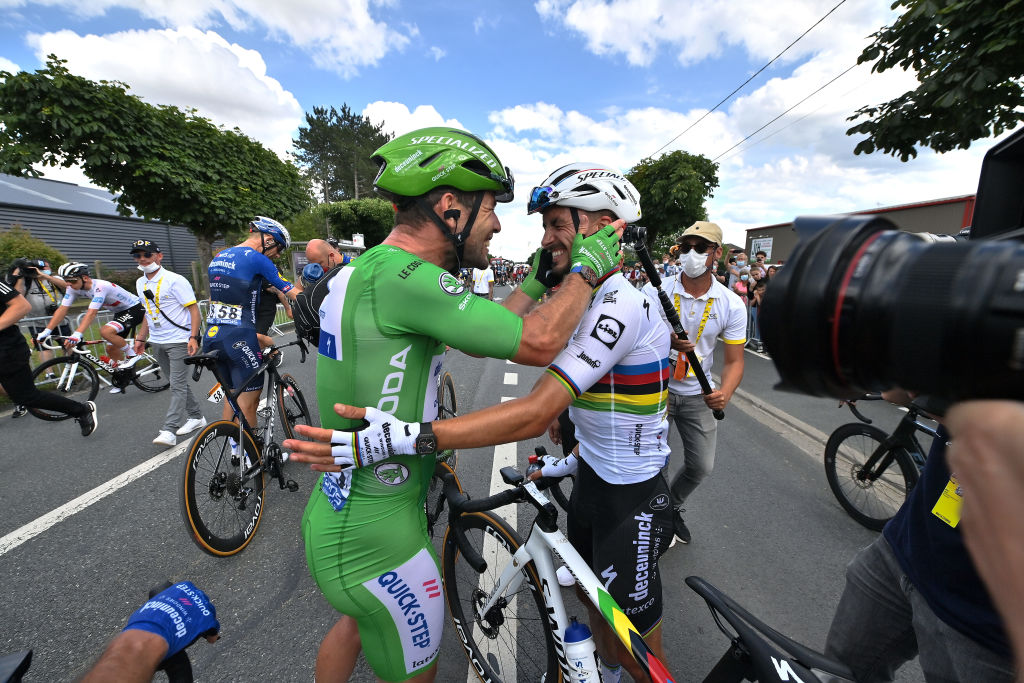
Following on from the previous point, Cavendish needs to build team spirit, and fast.
Astana is a team that can broadly be defined as Italo-Kazakh. The Kazakh contingent was nearly dismantled when Alexandr Vinokourov was temporarily ousted in 2021 but the former Olympic champion was reinstated and quickly set about securing continued backing from the state and maintaining the core of home riders on the roster. The Russian-speaking arm is accompanied by an Italian flavour, entrenched during Vincenzo Nibali's successful first spell at the team. Adding it up, you have 12 Russian speakers, 10 Italians, four Spanish speakers, plus a Brit, an Estonian, a North American, and a Dutchman.
It's not exactly what Cavendish is used to, having spent his time in the more Anglo set-ups of HTC and Team Sky, as well as the very Belgian QuickStep team. However, with so much success behind him, he is arguably someone who transcends national boundaries. He has a second home in Italy and a strong affinity with the country, and his time at Qhubeka, Bahrain-McLaren, and QuickStep suggest he embraces - publicly at least - the project and ethos of his teams.
Perhaps just a pertinent a question is whether the team will buy into him.
In the blink of an eye, their whole focus has shifted, with Cavendish the central figure. It's up to him to rally the troops and get them, to borrow from footballing lexicon, running through brick walls for him. The presence of a superstar - and a big personality - can have a destabilising effect on a group as a whole. On the other hand, Astana looked listless in 2022 and Cavendish might offer a much-needed focal point.
Cavendish is a critical and demanding leader, who'll pick up on every single aspect of a teammate's performance. But he's also a generous and affectionate leader, practically smothering every teammate's face in kisses after his wins on the 2021 Tour. Perhaps the most important thing is to get an early victory to build that rapport and momentum.
How will his new bike suit him?
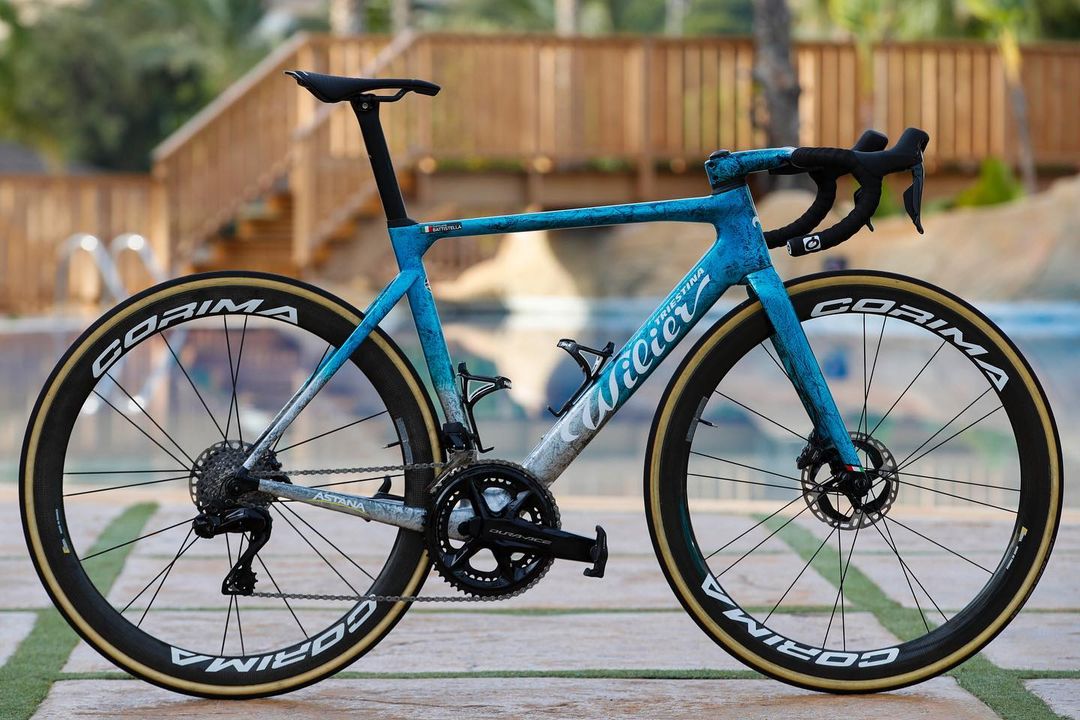
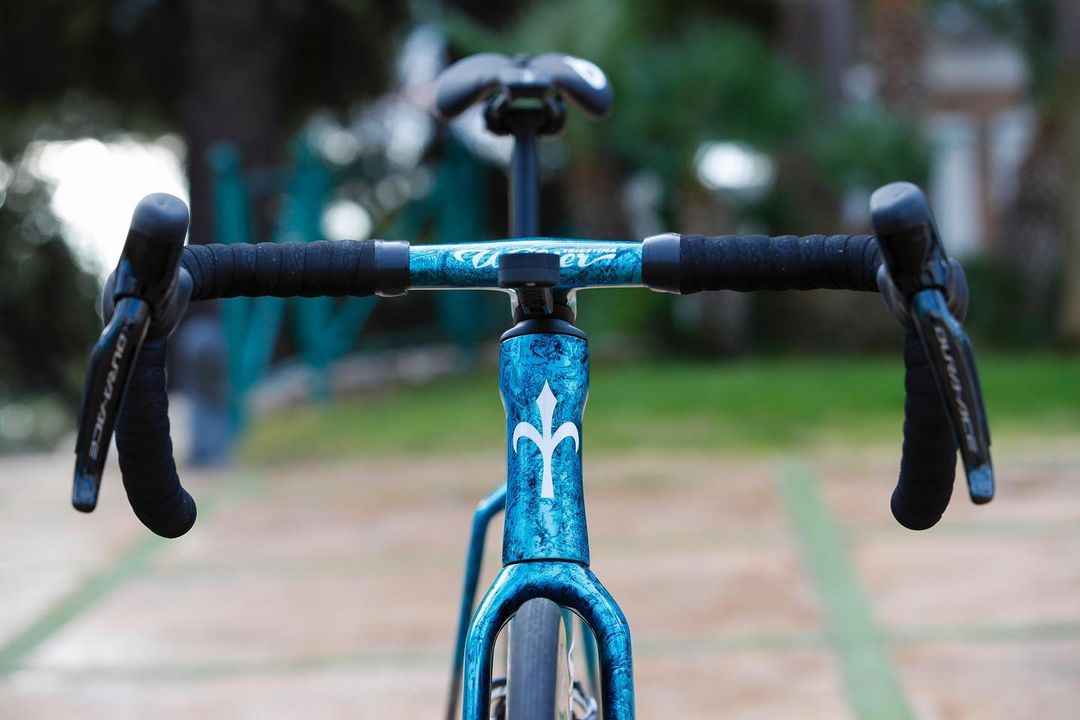
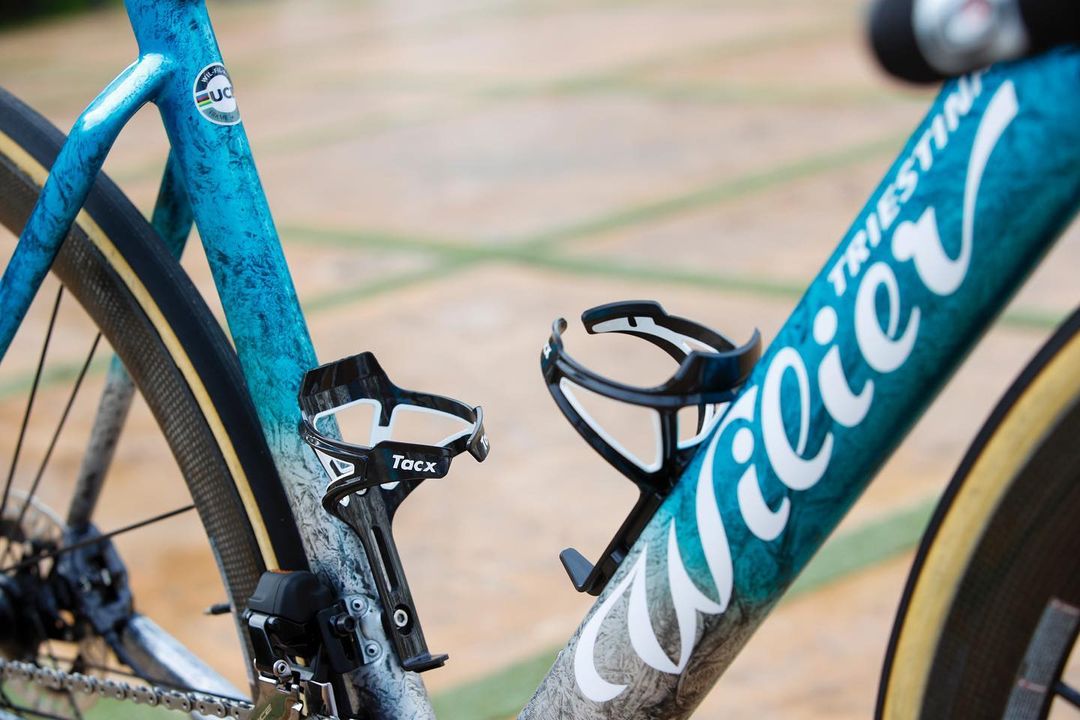
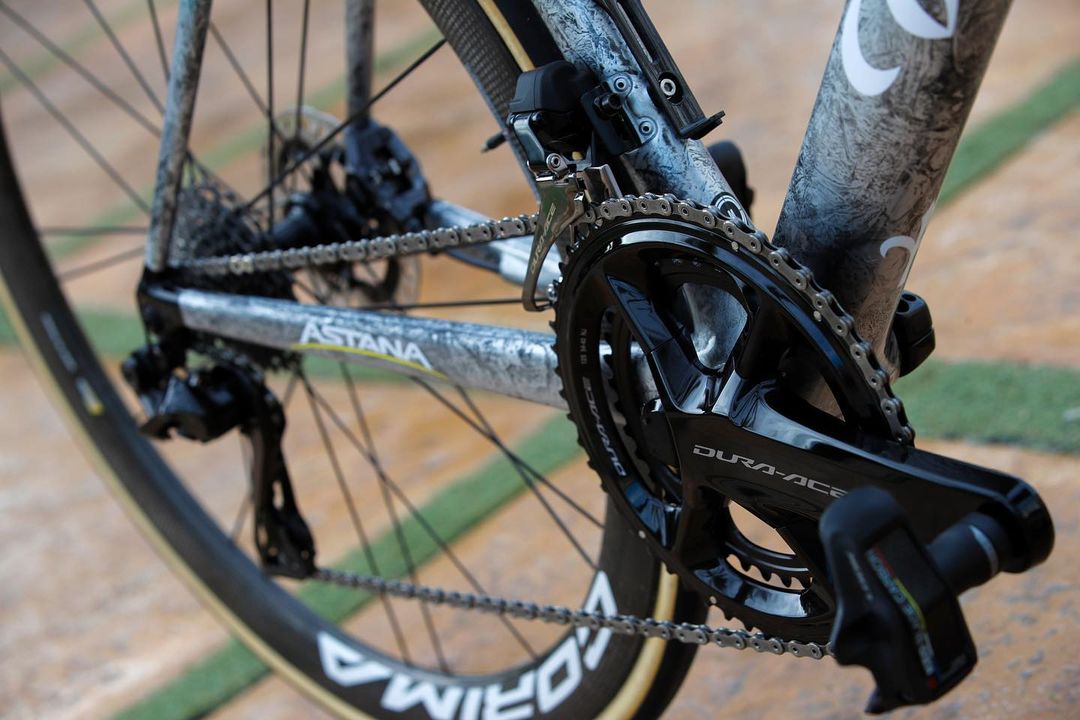
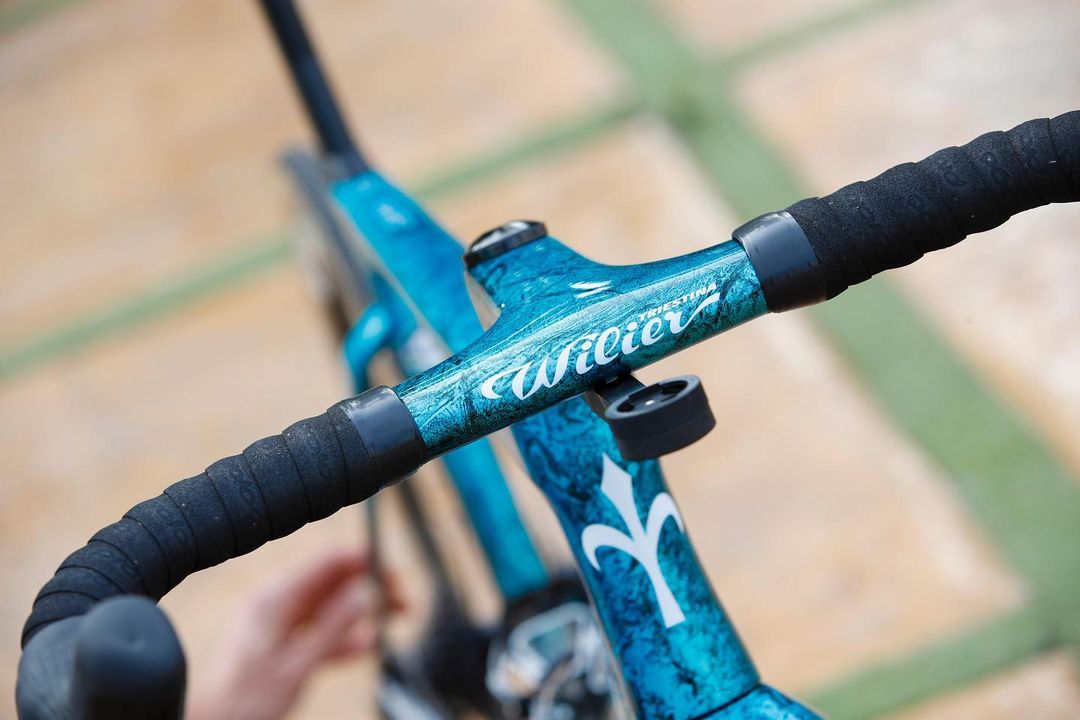
Legs are one thing, but a bike can spell the difference between victory and defeat. While not quite as pivotal as in time trialling, some bikes are considered by riders to be generally faster than others.
Although he won four Tour stages on a Cervélo in 2016, Cavendish was dissatisfied with his bike during much of his time at Dimension Data, describing it as "substandard" in one interview. The Specialized Venge - Cavendish's previous bike - was winning most sprints at that time, and he returned to Specialized, a company he has close ties with, for his comeback in 2021. In between, he was on a Merida, which, according to The Cycling Podcast's Daniel Friebe, he felt wasn't aggressive enough in its geometry.
Cavendish will now ride a Wilier Triestina, specifically the Italian brand's Filante SLR, coupled with Corima wheels. It'll be another departure, and more unfamiliarity, but Cavendish has been around the block with bikes, having also appeared on models from Scott, Giant, Pinarello, and BMC.
Cyclingnews understands that Wilier was involved in the signing and keen to have Cavendish on their bike. With Astana the only pro team sponsored by Wilier, the Filante hasn't had much experience in top-level bunch sprints, despite a long legacy of aggressive sprint-focussed frames through the Italian brand's long history.
So it remains to be seen quite how it shapes up, and quite how it suits Cavendish's aggressive forward-leaning style. For now, Friebe has revealed that first impressions have been good: "There aren't the concerns over equipment I feared he may have."
How will he be coached and managed?
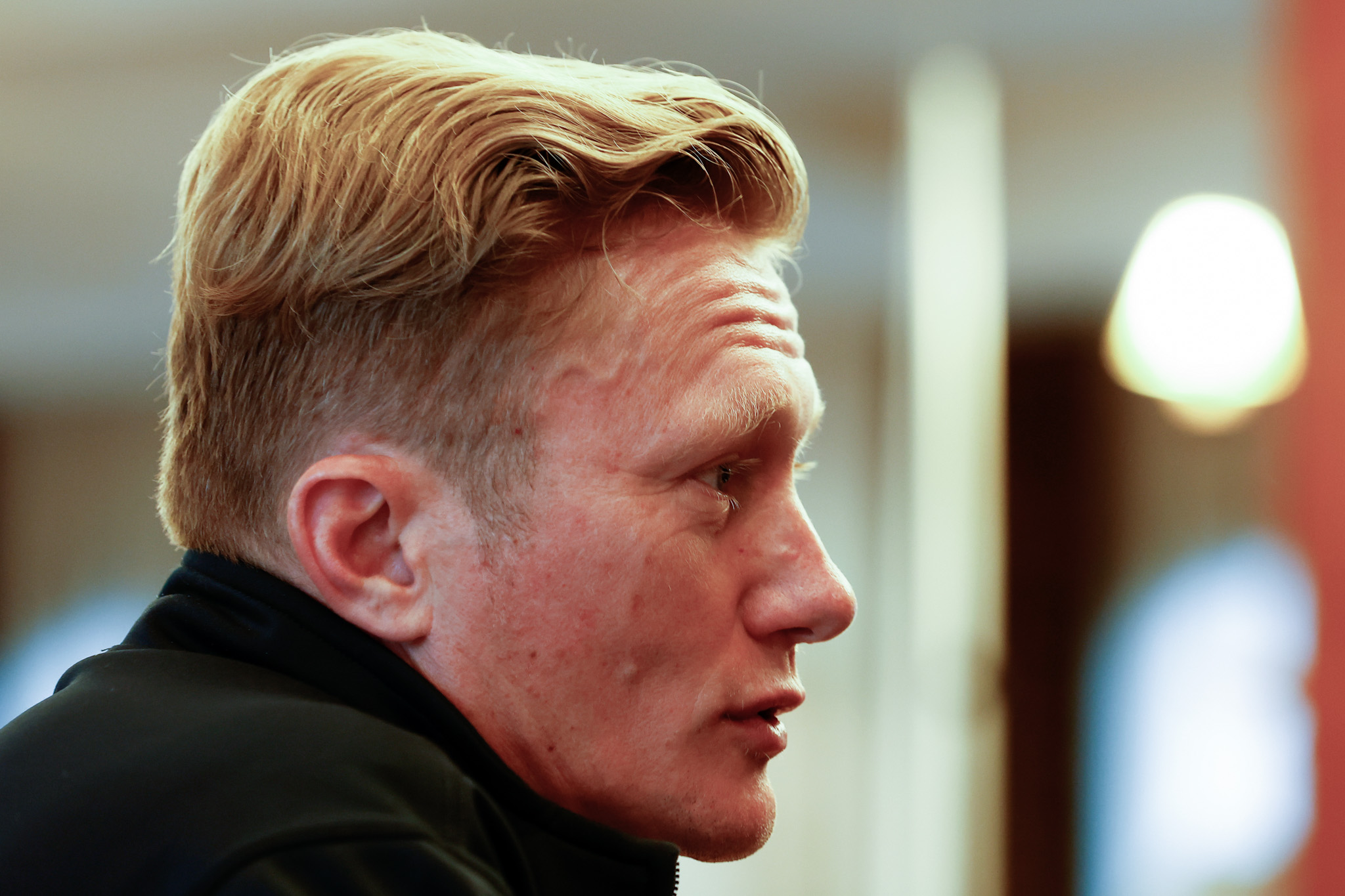
After three winless years, Cavendish was reborn at QuickStep in 2021, finding the speed, endurance, and confidence of old. Being clear of Epstein Barr Virus was one thing, but he has also paid no shortage of credit to the coach he began working with there, Vasilis Anastopoulos. The partnership was so successful that Cavendish enquired about continuing it in 2023, but the Greek will stay at QuickStep.
It's unclear at this stage who exactly will be responsible for Cavendish's coaching, and it's a relationship that could be critical. The 37-year-old has bags of experience and will surely look to replicate Anastopoulos' methods, but is it ever as simple as that?
Cyclingnews understands that sports director Stefano Zanini, a former sprinter and classics rider who won stages at the Tour de France and Giro d'Italia, will be responsible for the sprinting arm of Astana Qazaqstan in 2023. That relationship could also be key as they put the pieces in place for the lead-out.
And then there's the big boss, Alexandr Vinokourov. Cavendish has already praised him in his arrival press release, and has an affinity with his two sons who are on the Development squad. The relationship appears strong and Vinokourov has bought into the allure of the possible 35th Tour win, which is what this whole thing will ultimately be judged on. In any case, Vinokourov is not the type to pile public pressure on his riders in the manner of Cavendish's former boss Patrick Lefevere.
How will his race programme be built?
It'll be interesting to see how Cavendish's maps out his road to the Tour de France. His off-season has been hindered by the ongoing court case into the horrific burglary at his home at the end of 2021, and he's only now doing his first training camp with the team after being announced on the squad as late as mid-January.
Cavendish will therefore not be riding the Vuelta a San Juan, Mallorca Challenge, or Saudi Tour, with a debut in February at the Tour of Oman on the cards. The UAE Tour will feature several sprint opportunities, against top opposition, while the Tour of Oman will be a gentler way of easing in before staying in the Middle East for the UAE Tour. That was the format Cavendish followed in 2022.
There'll be the opportunity for more WorldTour wins at Tirreno-Adriatico - or, less likely, Paris-Nice - in early March before the main spring period, which will be more about smaller stage races and semi-Classics. The build-up to the Tour would then take shape via training camps into the early summer, followed by a final preparation stage race. The Dauphiné has become a no-go for sprinters but the Tour de Suisse might contain some chances, otherwise Astana will be looking to get a spot at the Belgium Tour or Tour of Slovenia - a race Cavendish has favoured in the past.
It remains to be seen whether a defence of his British national title is on the cards. It's an event where Cavendish has shown a different side to himself over the years, but is just six days out from the start of the Tour.
A balance will have to be found between training his way to peak fitness, gaining real-world experience with his new lead-out men, facing the competition he'll face in July, and getting some results that would be so important for morale.
How many opportunities are there at the Tour?
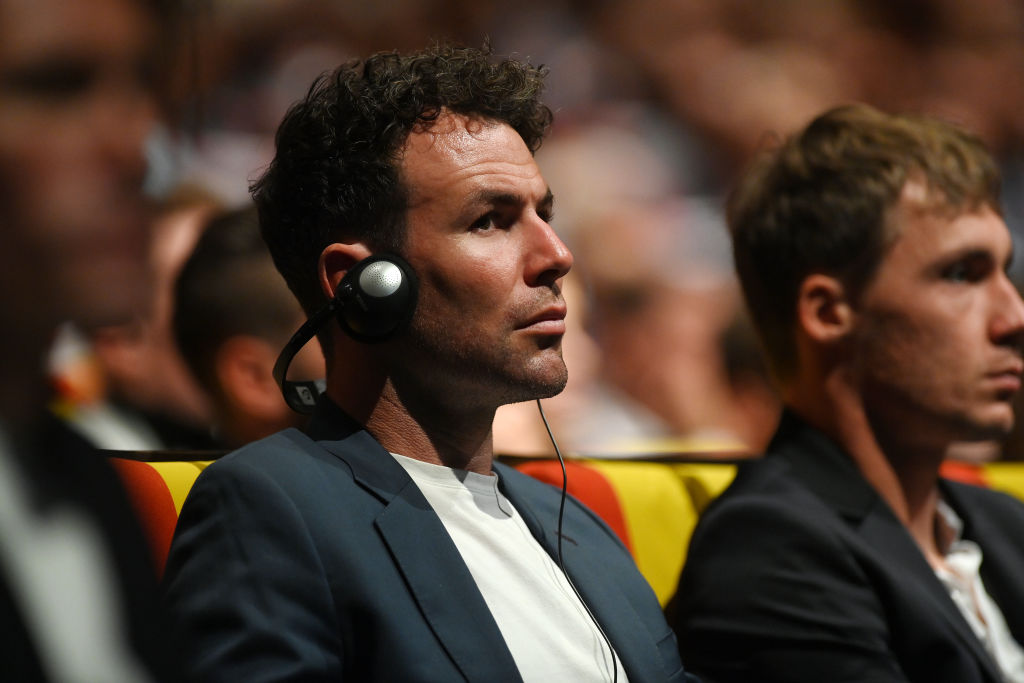
Cavendish reacted favourably to the route of the 2023 Tour as it was unveiled in Paris in October. B&B Hotels had just scrapped a planned team presentation at late notice and he was tight-lipped about whether he'd be riding the Tour but saw plenty of opportunities if so. He counted seven or eight, and described them as "real" sprints - "long boulevard finishes of more than a kilometre of a final straight".
That figure appears slightly optimistic given the hilly terrain peppered throughout the Tour, and Cavendish himself acknowledged it was one of the hardest Tour starts of his career. There's also the issue of getting through the Alps, with a monster stage over the Col de la Loze looking ripe for a looming time cut. From there, tired legs and depleted teams often turn potential final-week sprint stages into breakaway days.
The middle week is dominated by the Alps and Massif Central, with one potential sprint, so the first week is the happiest hunting ground, with potential chances on stages 3 and 4 before big-city finishes in Bordeaux - where he's won before - and Limoges on stages 7 and 8. In any case, with four wins on the Champs Elysées, Cavendish will always have Paris.
How does he match up to the competition?
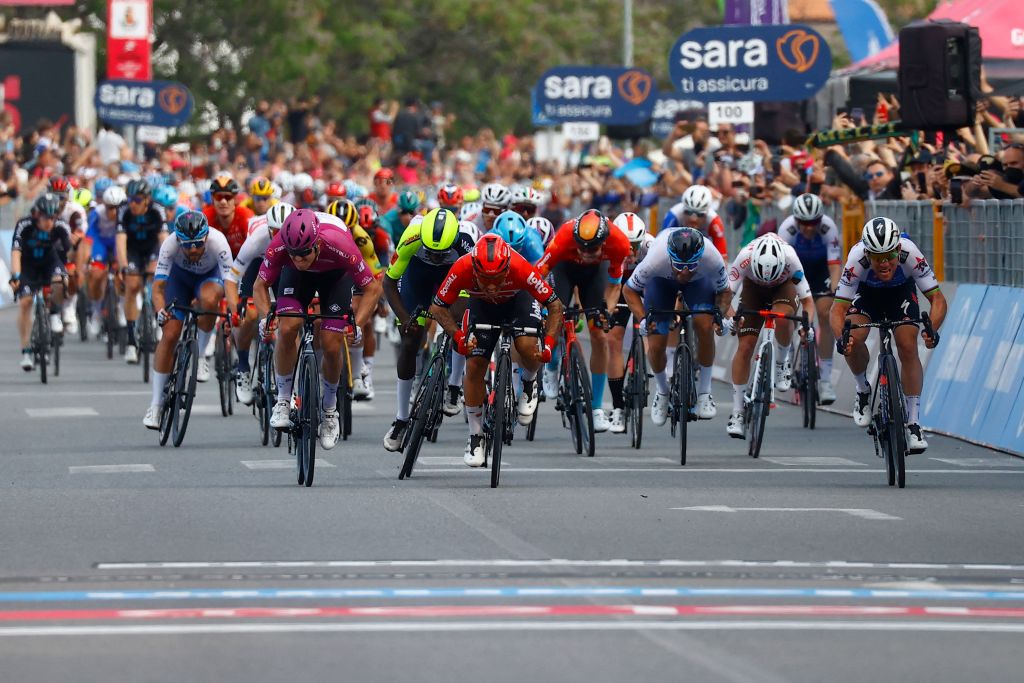
Things are looking increasingly tight at the top of the sprinting ranks, which won't make Cavendish's task any easier. He was full value for his four wins in 2021, and his win at last year's Giro, but it's fair to say he should be facing greater and deeper competition this July.
Fabio Jakobsen replaced Cavendish as lead sprinter at QuickStep in 2022 after his astounding recovery from a life-threatening crash, and is widely seen as the world's fastest. Jasper Philipsen (Alpecin-Deceuninck), meanwhile, won two Tour stages last year and finished atop Cyclingnews' sprinter ranking. Caleb Ewan (Lotto-Dstny) had a rough year but belongs in the top tier, while Sam Bennett (Bora-Hansgrohe) roared back to life at last year's Vuelta. Dylan Groenwegen (Jayco-Alula) and Arnaud Démare (Groupama-FDJ) are two more proven Tour-winning operators, and even Wout van Aert (Jumbo-Visma) is a big threat.
Add in Mads Pedersen (Trek-Segafredo), Phil Bauhaus (Bahrain Victorious), Fernando Gaviria (Movistar) and it's a highly competitive field. Factor in more like Bryan Coquard (Cofidis), Alexander Kristoff (Uno-X), and whoever Arkéa-Samsic and Intermarché choose to back from their sprinting stables, and those long boulevards will become crowded and chaotic.
Cavendish will be 38 by the time he lines up for the Tour, and has surely lost the edge on the pure pace that he once possessed. But he himself has always argued that there's more to sprinting - or, as he put it once, "chess on wheels" - than speed and strength, and he surely leads the way on experience if not also willpower. Besides, his 2022 form wasn't much of a drop-off from his glittering 2021 summer, anyway.
Barring Cavendish's own four-stage haul in 2021, which harked back to his crushing dominance of old, there has been more of a trend in the past five years of the spoils being shared around. Cavendish, then, should get a sniff, and maybe that's all he needs. It might be difficult to imagine him consistently dominating that list of riders, but with history on the line and fire in his belly, you could envisage that one star-aligned run to the line.
Even if all the factors listed in this piece weren't to come together, after 2021, who would dare write off Mark Cavendish again?
Patrick is a freelance sports writer and editor. He’s an NCTJ-accredited journalist with a bachelor’s degree in modern languages (French and Spanish). Patrick worked full-time at Cyclingnews for eight years between 2015 and 2023, latterly as Deputy Editor.

